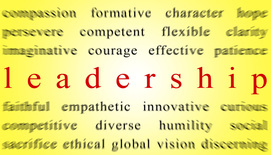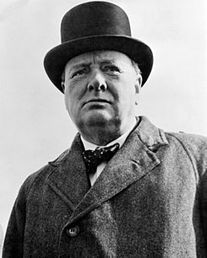
C.S. Lewis, one of the great minds of the last century, wisely observed, “If we let ourselves, we shall always be waiting for some distraction or other to end before we can really get down to work. The only people who achieve much are those who want knowledge so badly that they seek it while conditions are still unfavorable. Favorable conditions never come.” What Lewis teaches about the want for knowledge can also be applied to the development of you and your organization. There will never be a time with perfect conditions but there is no better time than now.
I once read a quote that said, “Too many people miss the opportunity for success because it is disguised in rolled up sleeves and calls itself work.” Developing as a leader takes sustained effort over time. It is doing the little things masterfully, day after day, that make those big dreams possible. The same can be said about the great teacher, coach or administrator. There are things that if done today will create a promising tomorrow.
Start with a plan: Every good plan involves specific goals and objectives. It is with goals that we stop moving aimlessly upon our personal and organizational journey and start moving towards the “X” on the map. Chances are you already know what needs to be done. What do you specifically want to accomplish as an individual, class or organization? Why do you want to accomplish it? What specific steps do you need to take to accomplish the goal? Creating a plan is determining the road you need to travel to reach the vista on the horizon.
Goals are just dreams with deadlines: When will your goals be met? Be specific with dates and times. Set deadlines for your big goals and also for the smaller goals that will lead you there. Someday never comes. I will get around to it usually means it’s not going to happen. Procrastination is the enemy of productivity. Having realistic deadlines lasers your focus and maximizes your productivity.
Accountability: A secret of successful people everywhere is the need to be accountable. Who will hold you accountable if you do not reach your goals or if you fail to execute your plan? Be honest with yourself in answering this next question… If you know that you will need to report back every week to a friend, coworker, boss or mentor on the progress of your goals, are you going to put your best effort into reaching those goals? Be honest… If you are like the vast majority of people, the answer is absolutely! Take advantage of the great opportunity of adding accountability to your goals and deadlines.
Remember that big shots are just little shots that keep on shooting. So don’t wait until tomorrow, start today in developing as a leader. Start today in developing your organization towards their full potential. Start today in becoming the teacher you always wanted to be. Journeys start with one step, so start today on the path towards excellence and you will be surprised at what tomorrow brings.
I once read a quote that said, “Too many people miss the opportunity for success because it is disguised in rolled up sleeves and calls itself work.” Developing as a leader takes sustained effort over time. It is doing the little things masterfully, day after day, that make those big dreams possible. The same can be said about the great teacher, coach or administrator. There are things that if done today will create a promising tomorrow.
Start with a plan: Every good plan involves specific goals and objectives. It is with goals that we stop moving aimlessly upon our personal and organizational journey and start moving towards the “X” on the map. Chances are you already know what needs to be done. What do you specifically want to accomplish as an individual, class or organization? Why do you want to accomplish it? What specific steps do you need to take to accomplish the goal? Creating a plan is determining the road you need to travel to reach the vista on the horizon.
Goals are just dreams with deadlines: When will your goals be met? Be specific with dates and times. Set deadlines for your big goals and also for the smaller goals that will lead you there. Someday never comes. I will get around to it usually means it’s not going to happen. Procrastination is the enemy of productivity. Having realistic deadlines lasers your focus and maximizes your productivity.
Accountability: A secret of successful people everywhere is the need to be accountable. Who will hold you accountable if you do not reach your goals or if you fail to execute your plan? Be honest with yourself in answering this next question… If you know that you will need to report back every week to a friend, coworker, boss or mentor on the progress of your goals, are you going to put your best effort into reaching those goals? Be honest… If you are like the vast majority of people, the answer is absolutely! Take advantage of the great opportunity of adding accountability to your goals and deadlines.
Remember that big shots are just little shots that keep on shooting. So don’t wait until tomorrow, start today in developing as a leader. Start today in developing your organization towards their full potential. Start today in becoming the teacher you always wanted to be. Journeys start with one step, so start today on the path towards excellence and you will be surprised at what tomorrow brings.



 RSS Feed
RSS Feed